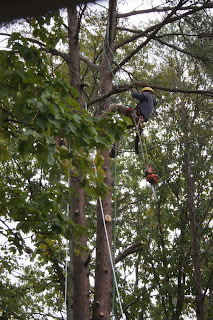“What is
the meaning of life?” If there’s a more profound, more perplexing question, I
haven’t heard it. Everyone has an opinion about it, but it’s difficult to find
a consensus on an answer. How would you respond?
Simplistic
thinkers might react with something like, “To have a good time, man!” Or reply,
”Just to get through the day.” But neither really addresses the quintessential
meaning of life. Shouldn’t life, its meaning and purpose be more than merely existing,
or enjoying some fleeting, sensory thrills?
More
seriously considered ideas have been suggested, but one I came across recently
caught my attention: "The
meaning of life is to find your gift. The purpose of life is to give it away."
It’s uncertain who originated this view. It has been attributed to both William
Shakespeare and Pablo Picasso the artist. Regardless of who said it first, it’s
worth considering.
One clarification: With
Christmas fast approaching, “Will” and/or Pablo weren’t referring to gifts we
find under the tree on Dec. 25. They were thinking about innate talents, skills
and passions, the things that inspire and motivate us – and in the process,
fill our lives with meaning and purpose.
 |
| Even proficiency at climbing and cutting trees can be a gift to offer others. |
I don’t fully concur with
the assertion, because I’m in agreement with the Westminster Shorter Catechism which
states, “Man’s chief end is to glorify God, and to enjoy him forever.” If we
believe God created us and has a unique plan for each of our lives, that’s supplies
ample meaning and purpose. But recognizing our gifts – innate talents, skills
and passions – and then determining to use them productively, also can go a
long way in giving meaning and purpose to our everyday lives.
The apostle Paul seemed to concur, presenting this advice to Timothy, his younger protégé: “I remind you to fan into flame the gift of God, which is in you
through the laying on of my hands…. He has saved us and called
us to a holy life – not because of anything we have done but because of his own
purpose and grace” (2 Timothy 1:6-9).
In Timothy’s case, the gift
involved channeling his faith into pastoral ministry. Paul exhorted him to “fan
it into flame” so others would receive full benefit from it. Most of us aren’t
called to preach, or to engage in pastoral ministry. But like Timothy, as
stewards of the gifts, passions and callings God has provided, we’re urged to
fan those into flame as well.
The Bible speaks specifically
about spiritual gifts such as leadership, teaching, prophecy, mercy, service, encouragement,
and others. But thinking in terms of recognizing our gift and then giving it
away, as the Shakespeare/Picasso quote proposes, we can broaden the meaning to
those things we’re especially good at that can be used to enhance the lives of
others.
For some, this is teaching.
As I’ve written before, the impact a gifted, dedicated teacher can have is
immeasurable. I marvel too at those who have a special affinity for certain
groups of people, whether they be small children, the disabled, the elderly and
infirm, or those who demonstrate compassion and selfless care to those
suffering with severe, often terminal illnesses.
Just the other day we had a
couple of guys come out and cut down a couple of troublesome trees in our yard.
Watching them clamber across those limbs, sometimes swaying in the wind, amazed
me. When I asked one, “Are you having fun yet?” he replied, “If I wasn’t having
fun, I wouldn’t be up here!” That, I believe, is the definition of a person who
has found his gift.
For me, recognizing my gift
– a love and facility for working with words – has resulted in a very
fulfilling career as a writer and editor. There might be some who disagree, but
I would like to think my work as an editor of newspapers and magazines,
journalist, book writer/editor, devotional writer and blogger has been of benefit
for some who have read my work.
My love for photography
also has enabled me to capture the wonders of God’s creation, whether in nature, things people have fashioned with the creativity the Lord has infused
into them, and the people themselves. And I’ve been able to share this with family members and
friends.
That’s why years ago I
adopted Psalm 45:1 as my “career verse.” It states, “My heart is overflowing with a good theme, I recite my composition
concerning the King. My tongue is the pen of a ready writer.” It’s even
served as the basis for my one-person writing and editing enterprise, ReadyWriter
Ink.
No comments:
Post a Comment